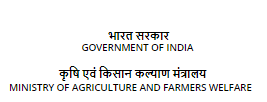AB Free (Phytogenic Blend as Antibiotic Replacement for Poultry)
Background:
The indiscriminate use of AGPs in poultry production is associated with the surge in emergence, amplification and transmission of antibiotic resistance in bacteria including zoonotic pathogens, transfer of antibiotic residues in edible poultry products and contamination of the environment with antibiotic-resistant microbes and antibiotic residues. These adversities impact human health, animal welfare and productivity, ecology and the economy as a whole. In some countries, AGPs have been banned and in forthcoming years the trend is anticipated in other countries as well. On the other hand, both Indian and global scenarios forecast an increase in requirement and production of poultry meat in near future to cater to the increasing population and demand for nutritious food of animal origin. All these factors indicate an immediate global need for alternatives to AGPs to produce broiler meat in a safer mode. In the poultry sector, Phytogenic feed additives are generally recognized as safe and are in high demand. Therefore, considering the potential of the broiler industry, the negative impact of AGPs and the rich unexplored plant biodiversity in India, identifying a suitable feed additive that could function as an alternative to AGPs could be a more practical approach.
Technology Details:
At ICAR-NIANP, a phytogenic feed additive was tested for its possibility to be adapted as an alternative to the antibiotic growth promoter, chlortetracycline in broiler chicken diets and the results are promising. The phytogenic feed additive was field-tested in a commercial farm of a farmer in a village in Tamil Nadu. The study involved feeding day-old commercial broiler chicks with feed supplemented with phytogenic feed additive (1%) or the antibiotic, chlortetracycline at a subtherapeutic level for 42 days. The birds were maintained under a deep litter system as per standard procedures. By feeding phytogenic feed additive, an improved average body weight gain (1.927kg) was obtained compared to broilers fed antibiotic (1.874kg). Similarly, an improved feed conversion ratio (1.684) was recorded in birds given phytogenic feed additive compared to birds given chlortetracycline (1.926). The mortality percentage between phytogenic and antibiotic treatments were not different. The product also enhanced meat sensory characteristics such as flavor, juiciness, tenderness and overall acceptability of meat. Further, at the specified dose, the product does not induce any negative effects on birds’ health. The results clearly showed that if this phytogenic feed additive is supplemented to broiler ration, it could improve growth performance, feed conversion efficiency and meat sensory attributes. Therefore, this phytogenic feed supplement could be used in the broiler ration as a potential alternative to the antibiotic growth promoter, chlortetracycline under optimum nutrition and management conditions. This technology is very effective and could be adapted by stakeholders.


